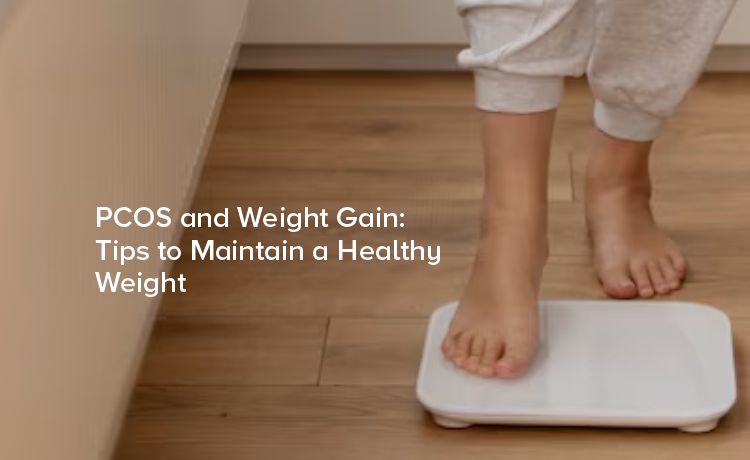
Polycystic Ovary Syndrome (PCOS) is a common hormonal disorder affecting millions of women around the world. For many with PCOS, weight gain is one of its most challenging symptoms. Due to hormonal imbalances, insulin resistance, and inflammation, managing weight can often feel like an uphill battle.
PCOS is deeply intertwined with weight-related challenges, and understanding the cause is the first step toward managing it effectively.
One of the most common traits of PCOS is insulin resistance. This occurs when your cells don’t respond properly to insulin, the hormone responsible for regulating blood sugar. Your body produces even more insulin as a result, and high insulin levels can lead to weight gain, especially around the abdomen.
Studies suggest that up to 70% of women with PCOS may experience some degree of insulin resistance, even if they are not overweight. This makes blood sugar regulation and weight management especially crucial.
PCOS can cause elevated levels of androgens, or "male hormones," and reduced levels of progesterone. These hormonal shifts can lead to increased hunger, intense cravings, and difficulties metabolising fat, all of which contribute to weight gain.
Women with PCOS often experience chronic low-level inflammation, which has been linked to weight gain and an increased risk of developing conditions like Type 2 diabetes. This inflammation exacerbates other PCOS symptoms, creating a frustrating cycle.
The good news? PCOS and weight gain are not insurmountable. With a targeted approach, you can manage your weight effectively while improving overall symptoms.
Diet plays a pivotal role in managing both PCOS and weight. A low-glycaemic index (GI) diet focuses on foods that release glucose slowly into the bloodstream, helping stabilise blood sugar levels and reduce insulin spikes.
What to Eat:
What to Avoid:
Pro tip: Include a source of protein or healthy fat with every meal to keep hunger and energy levels steady.
Exercise is another powerful tool for managing PCOS and achieving a healthy weight. Physical activity helps improve insulin sensitivity, burn excess calories, and combat inflammation.
Types of Exercise to Try:
Aim for at least 30 minutes of moderate exercise five days a week. Combine strength training and cardio for the best results.
Stress can worsen PCOS symptoms by increasing levels of cortisol, a stress hormone linked to weight gain. High cortisol levels can drive sugar cravings and make fat, especially abdominal fat, harder to shed.
Adopt stress-management techniques such as mindfulness meditation, journaling, or scheduling “me-time” regularly. Ensure you’re getting quality sleep, as poor sleep can also impact cortisol levels.
If hormonal imbalances are driving your PCOS symptoms—including weight gain—it’s worth consulting a healthcare professional. They may suggest treatments like hormonal birth control, medications to regulate insulin (like metformin), or supplements such as inositol, which has shown great promise for improving insulin sensitivity and hormonal balance.
Bear in mind that supplements or medications may offer support, but they should be combined with diet and lifestyle changes for the best outcomes.
When managing both PCOS and weight, focusing on incremental, sustainable changes is much more effective than attempting drastic measures. Start by setting small, achievable goals, like swapping out refined carbs for whole grains or walking for 15 minutes after lunch.
Remember, consistency is key. These small changes build a foundation for long-term health improvements.
Tracking your habits and progress can help you stay motivated and understand what’s working. Use tools like fitness apps, meal planners, or even a simple journal to record your meals, exercise, and overall well-being.
Keep in mind, weight is just one measure of health. Celebrate improvements in energy, mood, and symptom management along the way!
Managing PCOS and maintaining a healthy weight is not always easy, and it’s normal to encounter setbacks. Reframe your goals to focus on how you feel rather than only the number on the scale.
Weight gain caused by PCOS can be frustrating, but it doesn’t have to define you. By prioritising a balanced diet, regular exercise, and stress-management strategies, you can take control of your health and feel your best.